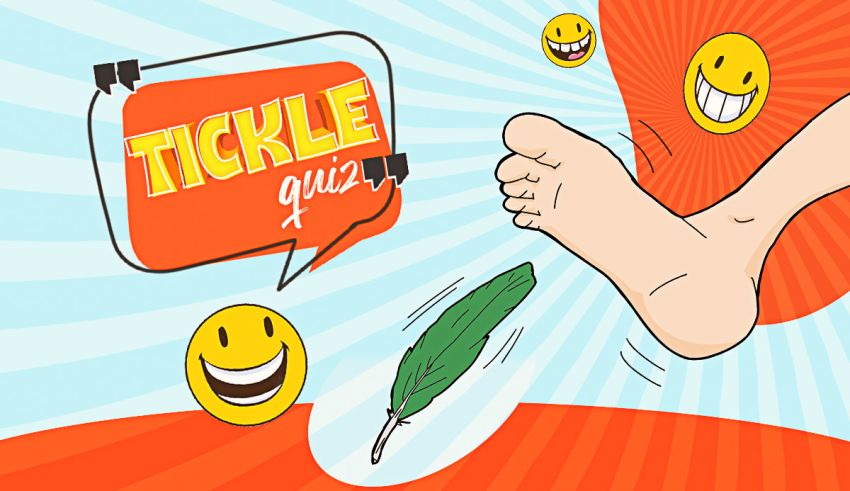This tickle test reveals your level of ticklishness and why. Learn more about your sensitive side and the reasoning for your tendency to giggle at other people’s physical contact.
A Shockingly Accurate Tickle Test
Exposing ticklish persons is the test’s main objective. Your feedback and decisions are used to adjust the outcomes. Additionally, you can assess yourself using a self-reporting procedure. The goal is to assist people who are unsure of why they overreact when someone touches a particular area of their body.
Find out if you have a tic or are simply ticklish.
You’re not ticklish just because you don’t like certain regions of your body to be touched. You might act in that way due to a tic or a strong hate. You can learn more about the causes of your behaviors and reactions by taking the tickling quiz.
Recognize your ticklish personality.
Knismesis and gargalesis are the two types of tickling sensations. Each one alludes to a distinct sensation on the skin that causes various responses. The quiz enables you to identify the one that has the greatest impact on you.
- Knismesis is the itchy feeling you get when something is crawling on your skin—or you think so. It serves as a self-protective system to warn you when a potentially dangerous organism approaches. Knismesis does not make people laugh. But it forces you to check your skin for any irritants by rubbing your palm over the itch.
- Gargalesis is the actual tickling sensation that causes laughter and spontaneous movements. Particular body parts, including the neck, abdomen, armpits, ribs, and thighs, are affected.
Why Are You So Ticklish, Please?
You’re sensitive because you’ve evolved to learn self-defense. People are ticklish in their body’s sensitive regions. They must understand how to defend those locations in case someone or something attacks them, which is why. You can practice self-defense in a secure setting by inviting other people to touch you in the same locations while you’re laughing.
The Perils of Making Others Laugh
Although human evolution has brought us to this point, tickling is not necessarily healthy for us. Teasing, especially when it involves children, has the potential to be unpleasant and emotionally damaging. (In ancient times, some countries used tickling as torture, and it’s believed to be one of the most successful methods yet thanks to its unbearable nature).
Children may have trust issues as a result.
The long-term effects of dominating a youngster and making them laugh are negative. When you physically restrict the child’s movement and tease them against their will, these acts erode trust dramatically.
Panic might result.
Studies show that tickling can activate the same parts of the brain that react to pain. Therefore, when you tickle someone firmly, especially a toddler, they could become anxious. They won’t be able to explain what’s happening to you because of their uncontrollable laughter, which is a fairly uncomfortable experience.
Anyhow, it’s not genuine laughter.
Numerous studies have demonstrated that ticklish people don’t actually giggle when you touch them. Similar automatic reactions have their origins in our protection mechanisms. Therefore, even if someone is smiling and having fun while you tickle them, you cannot expect them to feel wonderful afterwards.
How to Use the Tickle Quiz
Simple questions regarding your experiences as a ticklish or non-ticklish person make up the test.
assessing your responses
The first section of the questionnaire asks about your reaction to touching. People respond to such activities in a variety of ways, not all of which involve laughing. Before labeling yourself a ticklish person, it’s important to understand how you respond to stimuli.
reviewing your memory
Your early experiences with tickling and memories of those episodes will aid in producing accurate results. The exam asks you questions about how you feel about the phenomenon and how it affects your actions and bodily reactions.
Are You Able to Quit Being Ticklish? Sort Of
Place your hand over the hand of the person tickling you if you wish to stop being ticklish. Your brain will be able to anticipate their actions and become less sensitive to the result. Try tickling yourself, and the same thing happens. You can never successfully make yourself laugh through tickling since your brain can anticipate the results of your touch.





